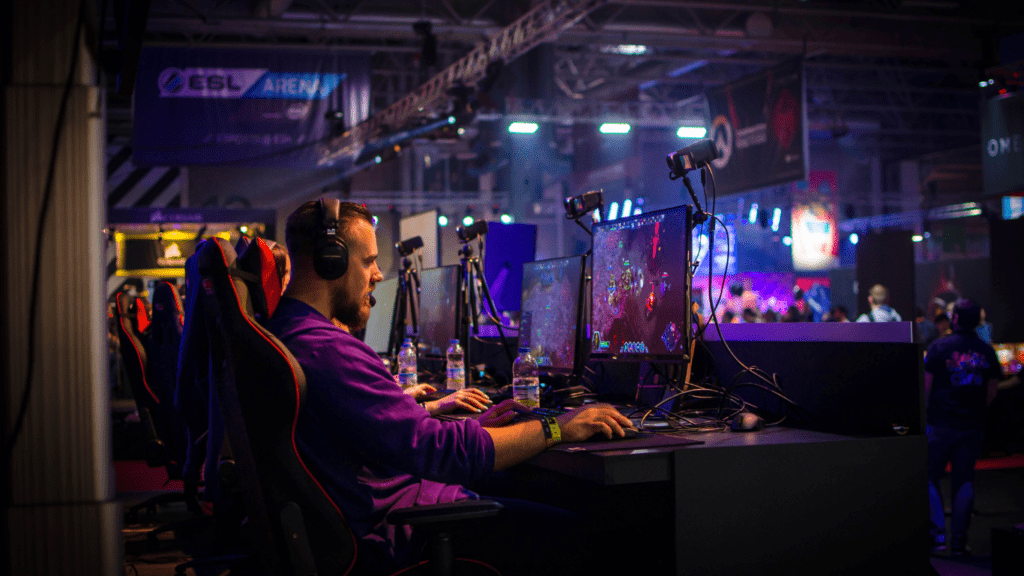As an avid follower of the esports landscape, I can’t help but wonder what the future holds for competitive gaming as we look ahead to 2030. The rapid evolution of technology and the growing popularity of esports have set the stage for some exciting developments in the coming years.
From advancements in virtual reality to the emergence of new gaming genres, the possibilities seem endless. In this article, I’ll delve into my predictions for the esports scene in 2030, exploring how the industry might evolve and what trends we can expect to see shaping the competitive gaming landscape.
With esports gaining mainstream recognition and attracting a global audience, it’s fascinating to speculate on how the competitive gaming scene will continue to grow and innovate in the next decade.
Evolution of Esports Landscape by 2030
Envisioning the esports landscape in 2030, I predict a transformative journey for the competitive gaming industry. By leveraging cutting-edge technologies and capitalizing on the expanding global audience, esports is poised for unprecedented growth. Here are my forecasts for the evolution of competitive gaming by 2030:
1. Tech-Infused Gameplay
Esports in 2030 will be characterized by immersive, tech-infused gameplay experiences. Advancements in virtual and augmented reality will revolutionize how players engage with their favorite titles, enhancing both the competitive dynamics and viewer experience.
2. Diverse Game Ecosystem
The esports ecosystem in 2030 will boast a diverse array of games spanning multiple genres and platforms. From traditional esports staples like MOBAs and FPS games to emerging genres like battle royales and auto-battlers, the industry will cater to a broad spectrum of player preferences.
3. Global Expansion
By 2030, esports will have solidified its status as a global phenomenon, with widespread participation from diverse regions worldwide. Emerging markets across Asia, Africa, and South America will play a pivotal role in driving growth, diversifying the competitive landscape and fostering new talent pools.
4. Mainstream Integration
In the next decade, esports will further integrate into mainstream culture, with increased collaboration between competitive gaming and traditional entertainment sectors. Cross-media partnerships, celebrity endorsements, and large-scale events will propel esports into the forefront of popular culture, cementing its place as a mainstream entertainment pillar.
5. Sustainable Infrastructure
As esports continues to mature, a focus on sustainability and responsible growth will become paramount. By 2030, the industry will prioritize eco-friendly practices, equitable player treatment, and long-term financial stability, ensuring a healthy and inclusive environment for players, teams, and fans alike.
6. Data-Driven Performance
The advent of big data analytics and AI technologies will revolutionize player and team performance analysis in esports by 2030. Data-driven insights will inform strategic decisions, personalized training regimens, and competitive gameplay optimizations, giving rise to a new era of precision and efficiency in competitive gaming.
7. Innovative Monetization Models
By 2030, esports will witness the rise of innovative monetization models that go beyond traditional sponsorships and advertising. From blockchain-powered fan engagement platforms to decentralized tournament ecosystems, the industry will explore novel ways to monetize content, engage audiences, and empower grassroots communities.
8. Regulatory Frameworks
The evolution of esports will necessitate robust regulatory frameworks that safeguard the integrity of competitive gaming. By 2030, standardized guidelines for player welfare, competition structure, and anti-doping measures will be established globally, promoting fair play, transparency, and long-term sustainability across the esports landscape.
Technological Advancements Shaping Esports
In 2030, the world of esports will be significantly influenced by cutting-edge technological advancements that enhance the gaming experience and redefine competitive gaming as we know it. Let’s delve into the key areas that will shape the future of esports.
Virtual Reality Integration
Immersive virtual reality (VR) technology is set to revolutionize the esports landscape, offering players and spectators a more immersive and engaging gaming experience. By 2030, VR integration in esports events could transport viewers into the heart of the action, enabling them to experience matches as if they were right there on the virtual battlefield.
This technological advancement has the potential to attract a larger audience and provide players with a new level of realism and interaction previously unseen in competitive gaming.
Augmented Reality Innovations
Augmented reality (AR) is poised to play a significant role in the evolution of esports by overlaying digital information onto the real world, creating a blended gaming experience. By 2030, AR innovations in esports could enable players to interact with game elements in their physical environment, blurring the line between the virtual and real worlds.
This integration of AR could bring a fresh dimension to gameplay, offering new strategic opportunities and enhancing the overall gaming experience for both players and spectators.
Changes in Esports Tournaments and Events
Exploring the evolving landscape of esports as we approach 2030, I anticipate significant transformations in how tournaments and events are structured and experienced. In the rapidly advancing world of competitive gaming, several key changes are poised to redefine the esports landscape in the coming years:
- Increasing Frequency of Major Tournaments: Esports tournaments, already a prominent feature in the gaming world, are likely to become even more frequent, offering players and fans a diverse array of competitive events to participate in and spectate.
- Global Expansion of Tournament Locations: As esports continues to gain traction worldwide, we can expect to see a proliferation of tournament locations across different regions, providing opportunities for diverse audiences to engage with competitive gaming on a global scale.
- Integration of Virtual and Augmented Reality in Events: The integration of immersive technologies such as virtual and augmented reality is set to revolutionize the way esports events are conducted, offering a more interactive and engaging experience for both players and viewers.
- Emergence of Cross-Genre Tournaments: With the diversification of game genres and the expanding player base, cross-genre tournaments that bring together players from different gaming disciplines are likely to gain popularity, creating a more inclusive and dynamic competitive environment.
- Enhanced Fan Engagement through Interactive Elements: Esports events in 2030 are expected to incorporate interactive elements that allow fans to interact with the action in real-time, fostering greater engagement and community participation.
- Sustainability Initiatives in Event Planning: Recognizing the importance of sustainability, esports tournaments and events may adopt eco-friendly practices and initiatives to reduce their environmental impact and promote a more sustainable gaming ecosystem.
- Evolution of Broadcasting and Streaming Technologies: The way esports events are broadcasted and streamed is set to evolve, with enhanced technologies and platforms offering viewers a more immersive and personalized viewing experience, blurring the lines between virtual and physical attendance.
The future of esports tournaments and events in 2030 holds exciting prospects for both players and fans, with innovative changes reshaping the competitive gaming scene and fostering a more inclusive and engaging esports culture.
Regulatory Framework for Esports in the Future
As esports continues to grow, the development of robust regulatory frameworks will be essential to ensure fairness, integrity, and transparency in competitive gaming. These frameworks will likely cover aspects such as player contracts, anti-doping policies, and match-fixing prevention, ensuring a level playing field for all.
In the future, collaboration between esports organizations, game developers, legal experts, and regulators will be crucial in maintaining ethical conduct and safeguarding the industry’s integrity. Proactive enforcement of these regulations will help esports thrive and gain broader acceptance globally.




